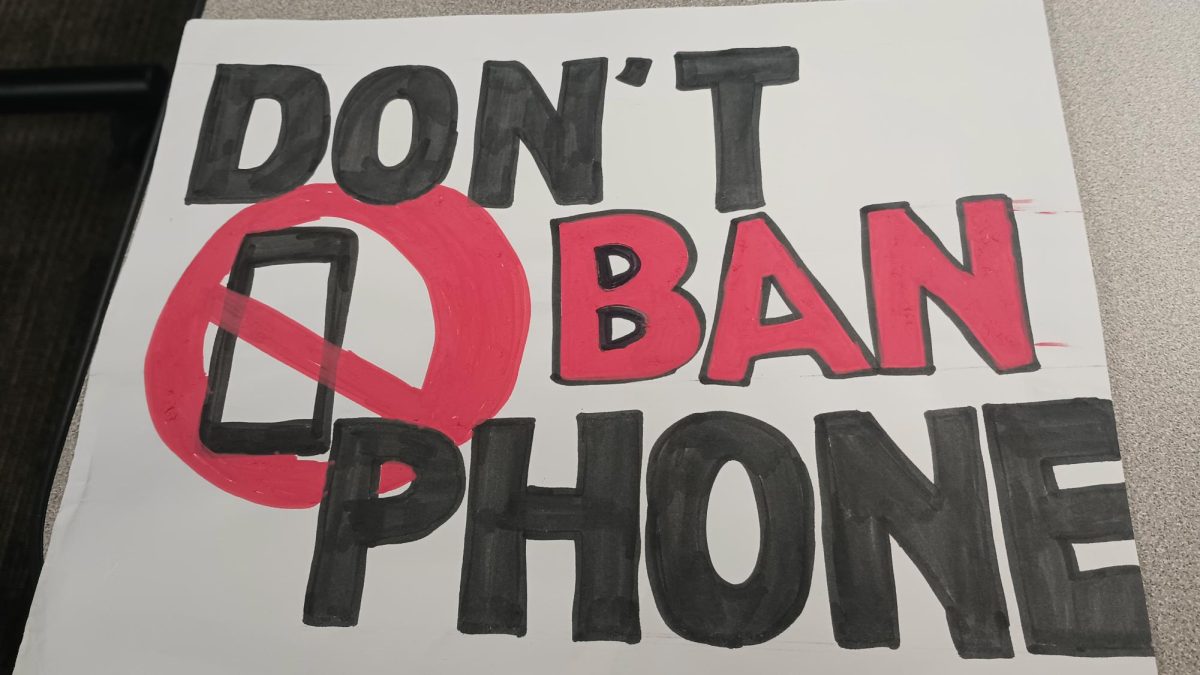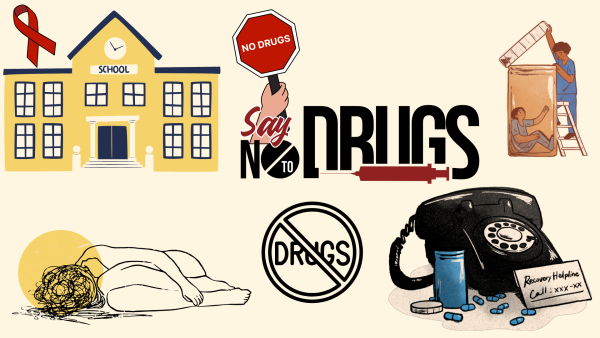The attack on transgender healthcare needs to stop
The transgender pride flag fills the frame with its colors of blue, pink and white.
When I was in third or fourth grade I asked some of my friends if they ever wished they were a boy. They all replied no and I was immediately embarrassed. I thought everyone felt this way.
It wasn’t until I was in 8th grade that I realized that I was transgender. Fast forward to today where I am using he/him pronouns and using the male restrooms.
I am thankful everyday for the support of my family, friends, and school. I am not going to pretend that being transgender is easy but I am very well aware of how much more difficult it can be.
According to Statstics about Discrimination faced by Transgender People by GLAAD “53% of transgender people report being harassed or disrespected in a place of public accommodation, for example, a bathroom.”
I know that using a public restroom for the general public is at most uncomfortable, but for me it’s scary.
As well as facing transphobia in public spaces, transgender people are constantly being targeted by transphobic laws.
Alabama House Bill 1 and Alabama Senate Bill 10 or HB1 and SB10 is also known as the “Alabama Vulnerable Child Compassion and Protection Act.”
To say this title is misleading would be an understatement. What this bill really does is make it a class C felony to provide gender affirming care for transgender youth under 19.
Making it a felony to provide transgender youth and teens with lifesaving health care is unethical and will have detrimental effects on transgender youth.
Lindsey Etheridge, the LGBTQ Coordinator for SAUSD said, “There is much research showing the positive effects of gender-affirming care to the physical and mental well-being of transgender youth. Conversely, when transgender youth are unable or prohibited from receiving supportive medical care, the mental health effects can be enormous. Not only do these bills threaten harm to trans youth by effectively making it illegal for them to receive supportive medical care, they also threaten an increase in violence against these youth by creating laws that make them unequal.”
These bills would also put transgender students at a risk of being forced to come out.
According to Section 5 of the AL HB1 bill, “No nurse, counselor, teacher, principal, or other administrative official at a public or private school attended by a minor shall do either of the following: (2) Withhold from a minor’s parent or legal guardian information related to a minor’s perception that his or her gender or sex is inconsistent with his or her sex.”
According to a study conducted by the Public Religion Rescearch Institue in regards to how comfortable parents would be if their child came out to them as transgender, “48% say they would be somewhat or very comfortable with this, while the same percentage says they would feel uncomfortable.”
Outing transgender children to their parents can pose an extreme safety risk as some may be kicked out or hurt.
Middle College GSA advisor Kathleen Peterson stated, “As a teacher, I feel it is important that everyone at the school site supports transgender students. We need to be flexible in terms of using pronouns that fit the student. We need to have bathrooms for the sex they identify with be available to them. We need to be inclusive.”
Many other people voice the importance of supporting transgender youth in the midst of these discriminatory laws.
Sophomore Gil Lopez said, “If a student identifies as a certain gender, support them with using the correct pronouns, new names, and most importantly continue educating yourself on transgender issues and ways you can support.”
Transgender students need support and access to gender-affirming health care. Transgender youth will suffer enormously from the passing of bills that criminalize gender affirming care.
Etheridge said, “There are over 20 states currently looking to pass legislation that is antithetical to what we know is supportive of transgender youth based both on their reports and what is borne out in the research. We must be vigilant in our support and advocacy for basic human rights for transgender youth.”

I have a level 5. Paladin Half-Elf D&D character, I’ve been to an Angels game where they got seven solo home runs but still lost, and when I’m...






































